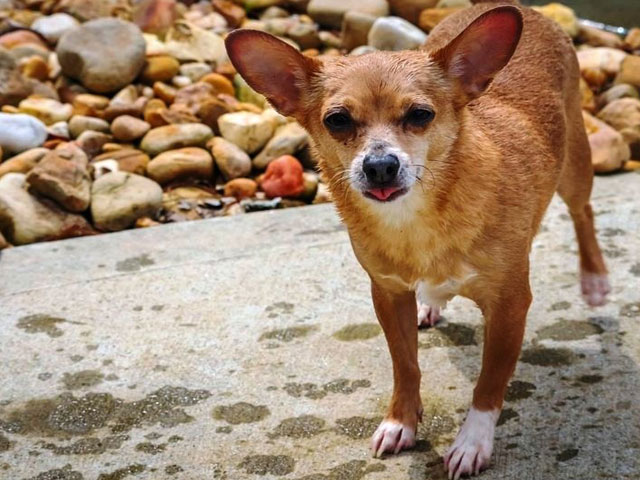
There are now even successful breeding businesses importing semen for in vitro fertilisation of various dog breeds, much like cows and other livestock. Veterinary experts around the world, however, discourage crossbreeding for various reasons.
In Lahore, the University of Veterinary Animal Sciences during 2011 held a successful experiment of artificial dog breeding, after which it was hoped that they could begin making new and unique breeds. However, veterinary experts maintain that dogs born from artificial breeding face several health issues and note that such intentional crossbreeding is prohibited not only in Pakistan but in much of the world.
According to Dr Zahid Tahir, a veterinarian at an animal hospital in Lahore, Pakistanis are exhibiting increased awareness and care for pet animals and their health. “We now have modern labs for medical examinations of pet animals, while many sub-specialities of veterinary sciences have sprung up.”
He also noted that restrictions have recently been placed on ‘unnatural breeding’ of various dog breeds, especially German Shepherds. However, he warned, several breeders in Pakistan are still making use of crossbreeding to obtain breeds of their choice.
Some breeders import frozen semen from various countries, while others store semen samples of various breeds for many years and use them when they are needed.
“Crossbreeding and inbreeding have given rise to several diseases, and experts want to try to cut down the complications,” Dr Zahid said.
Pug Dog Club of Pakistan President Fahim Asghar maintains that many people continue to trust conventional methods of dog breeding, but modern standards and technology are being used at many of the established clubs. According to Asghar, the practice of crossbreeding is discouraged as it leads to changes in the breed.
“Dogs born from crossbreeding cannot get registered at the world level. The world club for dogs, the Fédération Cynologique Internationale (FCI), must be presented with a record of seven ancestors of the dog being presented for registration, for which it also conducts DNA testing, he said, while adding that there is record bank in Germany for dog breeds.
In Pakistan, we have the Kennel Club of Pakistan, which is associated with the FCI. The club has prohibited crossbreeding of dissimilar dog breeds as it would make it difficult to ascertain the true breed of a dog, he said. There are about 1,000 different dog breeds throughout the world, while in Pakistan, we have between 30 and 35 breeds. “Currently, no Pakistani breed is registered at the world level, but efforts are being made to get the Baltair, Kohati Gultair, and Bakharwal breeds registered at an international level. “The record of five of the Baltair’s ancestors has been put together and as soon as a trail of seven breeds is determined, the dogs could be registered,” he explained. According to veterinary doctor Taimur Saleem, Pakistan there are about 160 private animal hospitals registered in the country, of which only 60 are registered in Lahore.
Published in The Express Tribune, May 24th, 2019.








1732643921-0/4548774-1403918848-(1)1732643921-0-270x192.webp)








COMMENTS
Comments are moderated and generally will be posted if they are on-topic and not abusive.
For more information, please see our Comments FAQ